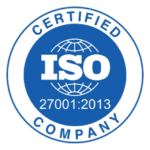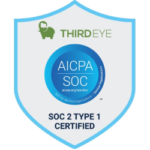
Helping the Little Guy: The Power of Open Source Software for Startups
It’s no secret that open source software holds many benefits for businesses looking to reap the rewards of these innovative, collaborative and incidentally free efforts of developers around the world. Even major companies such as Salesforce have opened up their software for developers to test, debug and improve. Other huge players that run on open source software include Netflix and Twitter. In fact, 78 percent of companies run on open source. So, what if I told you these benefits improve exponentially for startups using OSS to launch and scale their business?
Open source software has leveled the playing field so that even small startups can leverage advanced technologies, without needing the big budget to go with it. Here are the top ways that startups seriously benefit from running on open source software solutions.
Power and Control
Startups are always are running under strict budgetary restrictions as they’re just starting out. This means executing their business model in the most economical way, and open source software undeniably allows this by relieving businesses of the need to pay the expensive initial fees of proprietary software. In fact, Linux found that its users save up to 55 percent over commercial solutions, and Barclays bank reduced its software development costs by 90 percent using Linux.
While it’s likely that down the line they may have to spend money on support, training or bespoke development needs, these choices can be made as per their business plan and actual business traction, and deployed as and when needed.
Power in the form of expanded capabilities that comes from open source software is also in large part due to the community of talented programmers who build and craft the solution, allowing for quicker troubleshooting and accelerated development. Many hands can deliver powerful results.
Innovation, Productivity and Agility
Startups need to be able to experiment freely to understand what works for their business and what doesn’t. If this need to try different options is shackled down by high costs or contractual commitment, they won’t be trying out the necessary paths or making the necessary mistakes to understand which is the best route to take—not to mention the benefit of being able to take advantage of new tools as soon as they become available, especially before other big players that have developed their own proprietary software.
Open source software allows for this kind of agility, which breeds innovation. Without the requirement to follow the dictates of a particular vendor, startups can explore all the avenues that they need to, until they know the right way for them.
For example, startups working within AI will need to identify the algorithm that works best for their particular business needs. To identify these algorithms from the library, data scientists have to perform many trial-and-error iterations. This is usually followed by a detailed data analysis and discovery phase. Only after going through these iterative cycles will the data scientist have a full understanding of which algorithm to use, how best to slice and dice the data and how best to get the expected business results.
If it wasn’t for open source software, going through these cycles would be prohibitively expensive. This is how top companies were expected to create AI algorithms in the past—with huge expenses on manpower and resources. Now, these open source technologies are mature enough to apply predictably, making AI startups easier and cheaper to build.
Open source software helps startups take huge strides in their productivity levels, too. A studyconducted by Frank Nagle, assistant professor of strategy at the Marshall School of Business at the University of Southern California, measured the impact of free open source software on productivity, especially since a growing number of businesses are increasingly using open source software as a key input.
The study found productivity either always increased or stayed neutral, as a result of open source software—the impact was never negative. For every 1 percent increase in the use of free open source software, profits can go up by $100,000. This is a “huge amount for small firms,” said Nagle.
Security and Reliability
Due to its public nature, the software’s source code is likely more reliable than anything built by independent groups of developers. And although open source software is not automatically more secure than proprietary programs, unlike closed solutions, open source software is transparent and available for inspection. So, by opening up the software and allowing anyone to fix broken code that might put it at a risk, companies can utilize the proactivity of the community to enhance the security of their programs.
Startups that are just starting out may be intimidated by the amount of open source software options that are out there, but this shouldn’t put them off—there’s a huge amount to gain by opting for open source technologies. Between saving on costs and resources, increased capacity for innovation and agility, and having the security of your systems granted by the open source software community and their dedication to great code, the options are countless for forward-thinking startups.
Source: Helping the Little Guy: The Power of Open Source Software for Startups









